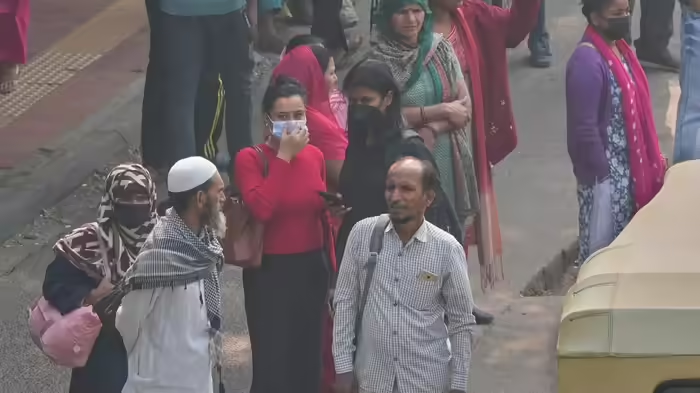
New Delhi: With air quality in Delhi-NCR deteriorating once again, authorities are preparing to revise the Graded Response Action Plan (GRAP)—the region’s primary emergency mechanism to control air pollution. Following directives from the Supreme Court, the Commission for Air Quality Management (CAQM) has begun consultations with all related agencies and stakeholders. The proposed changes may be implemented within this pollution season itself.
The last major modification to GRAP was carried out in 2024. However, with smog levels rising and AQI frequently slipping into severe zones, CAQM is considering several steps that would be triggered at lower AQI ranges than before.
Key Measures Likely to Be Shifted to Earlier Stages
According to sources, the proposed revisions include:
- Calling 50% staff to public and private offices, which earlier fell under GRAP Stage 4, may now be triggered from Stage 3.
- Changing work timings in government offices, currently part of Stage 3, may be shifted to Stage 2.
- Ensuring uninterrupted power supply, earlier activated under Stage 2, may now be included in Stage 1.
These moves, CAQM said, will primarily be advisory-based measures, but can be enforced swiftly if air quality worsens. Agencies have been asked to submit feedback before formal approval is granted.
Why Are These Changes Necessary?
Despite GRAP restrictions being activated every winter, Delhi-NCR often sees little relief from smog and toxic air. Experts believe tightened measures—and earlier implementation—are essential.
- Sunil Dahiya, Founder and Lead Analyst at Enviro Catalyst, said that the current situation requires GRAP phases to be upgraded and tightened.
- Anumita Roychowdhury, Executive Director at CSE, stressed that effective enforcement is crucial, as GRAP measures mean little without strict implementation.
- Climate Trends recently noted that stubble burning smoke is less this year, indicating that the bulk of pollution is local, and Delhi must focus on reducing its own emission sources.
What Impact Could the Revisions Have?
Experts suggest that activating key restrictions earlier could:
- Slow down the build-up of toxic air,
- Reduce peak smog levels,
- Improve coordination between agencies,
- Provide earlier public health safeguards.
The revisions aim to ensure Delhi-NCR doesn’t reach the severe air quality emergency experienced in past winters.
Discover more from SD NEWS agency
Subscribe to get the latest posts sent to your email.
